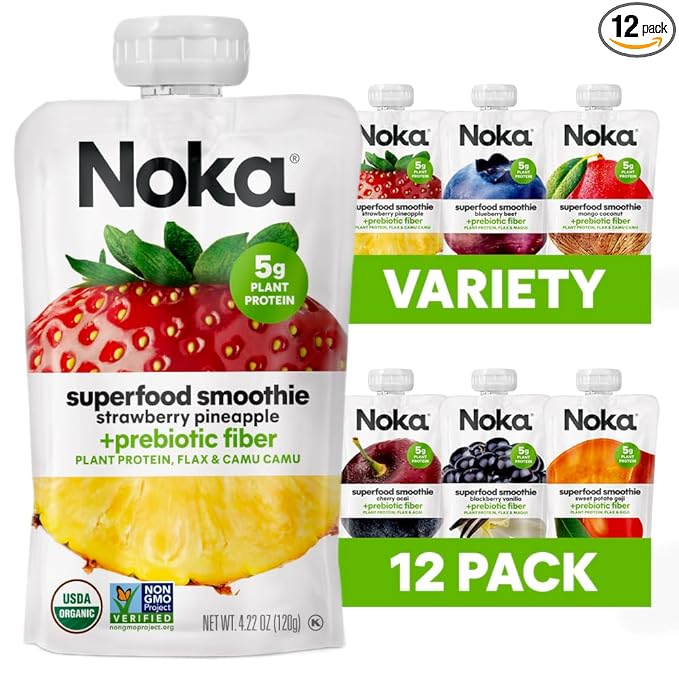Introduction
- The ketogenic diet, otherwise called the "keto diet," is a high-fat, low-sugar diet that expects to prompt a condition of ketosis in the body. This is achieved by drastically reducing carbohydrate intake and replacing it with healthy fats, resulting in the body breaking down fat for energy instead of carbohydrates.
- Oat milk is a non-dairy alternative made from whole oats and water. Oat Milk has gained popularity as it is considered a healthy and sustainable alternative to traditional dairy milk. It is also often a good option for lactose intolerant or allergic to nuts.

Nutritional Profile of Oat Milk
- Oat milk is relatively high in carbohydrates, with a typical serving (about 1 cup) containing around 13-17 grams of carbohydrates.
- It also contains moderate amounts of protein (around 2-3 grams per serving) and relatively small amounts of fat (around 2-3 grams per serving).
- The calorie content of oat milk can vary depending on the brand, but it is generally around 130-160 calories per 1 cup serving.

- Cow's milk contains about 12 grams of carbohydrates per 1 cup serving, 8 grams of protein and 8 grams of fat, and 150 calories
- Almond milk contains about 1 gram of carbohydrates per 1 cup serving, 1 gram of protein and 2.5 grams of fat, and 30-50 calories.

Compatibility of Oat Milk with a Ketogenic Diet
- The ketogenic diet is characterized by a very low intake of carbohydrates, typically less than 50 grams per day. This is because the goal of the diet is to induce a state of ketosis, where the body burns fat for energy instead of carbohydrates. Therefore, high carbohydrate food like oat milk would not align with the principle of this diet.
- Consuming a high amount of carbohydrates while on a ketogenic diet can kick you out of ketosis and prevent weight loss, or other benefits that you expect from the keto diet.
- Therefore, it would be challenging to include oat milk as a regular part of a ketogenic diet due to its high carbohydrate content and it may require significant adjustments to daily carbohydrate intake.

Compatibility of Oat Milk with a Ketogenic Diet (cont'd):
- In order to include oat milk in a ketogenic diet, it would likely be necessary to consume it in minimal amounts and make adjustments elsewhere in the diet to compensate for the additional carbohydrates.
- Another alternative would be to look for oat milk products that are made with fewer oats, or oat milk alternatives like oat milk made with sprouted oats which has fewer carbohydrates.
- Also, using oat milk in recipes and replacing them with other high carbohydrate ingredients, that way the amount of total carbohydrates in a meal is still low. -Additionally, one could consider using oat milk only as an occasional treat or in small amounts as a flavoring agent rather than a main ingredient.
- It's important to note that following a ketogenic diet requires strict adherence to the macronutrient ratios, which may not be sustainable for some individuals, so any decisions about incorporating oat milk should be made with the guidance of a healthcare professional.

Potential Health Benefits and Risks of Using Oat Milk on a Ketogenic Diet
- Oat milk can be a good source of several essential nutrients, such as calcium, vitamin D, and vitamin B12.
- Oat milk also contains antioxidants, beta-glucans, and other beneficial compounds that can have positive effects on heart health, blood sugar control and digestion.
- However, as mentioned earlier, one of the main concerns about using oat milk on a ketogenic diet is its high carbohydrate content, which can cause an increase in the overall carbohydrate intake, putting you out of the ketosis state and impeding the benefits of the keto diet.
- Additionally, consuming too much oat milk may also contribute to weight gain if not carefully monitored and balanced with the rest of the diet.
- Those following a ketogenic diet should carefully consider the potential benefits and risks of including oat milk in their diet and consult a healthcare professional before making any dietary changes.
- Those following a ketogenic diet should carefully consider the potential benefits and risks of including oat milk in their diet and consult a healthcare professional before making any dietary changes.

Recipes and usage ideas
- Oat milk can be used as a substitution for other high-carb ingredients in ketogenic-friendly recipes to add flavor and creamy texture.
- Here are a few examples of substitutions you could make:
- Instead of using heavy cream, use oat milk to make a keto-friendly Alfredo sauce or a creamy keto soup.
- -Use oat milk in place of cow's milk or almond milk in ketogenic-friendly smoothies or protein shakes.
- -Use oat milk as a base for keto-friendly ice cream or as a thickener for ketogenic-friendly puddings.
- -Oat milk can be used to make ketogenic-friendly cream cheese and cheese sauce.
- However, it's important to keep in mind that when using oat milk as a substitution, you may need to adjust the recipe accordingly to maintain the desired macronutrient ratio.
- When using oat milk in a ketogenic diet, it's best to look for unsweetened and plain options and limit the amount used in order to minimize carbohydrate intake.

Recipes and usage ideas (cont'd):
- Incorporating oat milk into ketogenic-friendly recipes that are low in carbohydrates can be challenging, due to its high carbohydrate content.
However, some low-carbohydrate recipes that could incorporate small amounts of oat milk include:
- ketogenic-friendly oat milk latte made with a low-carb sweetener and ketogenic-friendly milk like almond or coconut milk.
- ketogenic-friendly oat milk pancakes made with almond flour and low-carb sweetener.
- ketogenic-friendly oat milk custard made with low-carb sweeteners and eggs
- ketogenic-friendly oat milk ice cream made with low-carb sweeteners and ketogenic-friendly heavy cream
- As always when using oat milk in a ketogenic diet, it's important to use it in small amounts and to make adjustments to the recipe to keep the total carbohydrate content low.
- Be sure to keep track of the carbohydrate content of each recipe, and make adjustments to the recipes to ensure it aligns with your macronutrient ratios.
.png)
Conclusion
- The ketogenic diet is a low-carbohydrate, high-fat diet that aims to induce a state of ketosis in the body. Oat milk is a non-dairy alternative that has become increasingly popular in recent years.
- Oat milk is relatively high in carbohydrates compared to other types of milk, with about 13-17 grams of carbohydrates per 1 cup serving. This carbohydrate content may not align with the principles of a ketogenic diet, which typically requires a very low intake of carbohydrates.
- To include oat milk in a ketogenic diet, it would likely be necessary to consume it in very limited amounts and make adjustments elsewhere in the diet to compensate for the additional carbohydrates.
- Oat milk can be a good source of several essential nutrients and contains antioxidants, beta-glucans, and other beneficial compounds that can have positive effects on heart health, blood sugar control, and digestion.
- There are potential health benefits to using oat milk on a ketogenic diet, but it is essential to be aware of the risks such as increasing carbohydrate intake and impeding the effects of the keto diet.
- From my perspective, incorporating oat milk into a ketogenic diet can be challenging and may require significant adjustments to daily carbohydrate intake. However, some may find a small inclusion of oat milk in their diet as a tasty addition, as long as they keep track of the carbohydrate content and make adjustments accordingly.
- I recommend consulting with a healthcare professional before making any dietary changes, especially for those following a strict ketogenic diet. Further research on the effects of incorporating oat milk in a ketogenic diet would be beneficial in understanding its potential effects and limitations.

Note: It's important to note that oat milk, like other plant-based milk alternatives, is relatively high in carbohydrates compared to other options such as almond or coconut milk. A typical serving of oat milk can contain as much as 13-17 grams of carbohydrates. This high carbohydrate content makes it difficult to incorporate oat milk into a ketogenic diet, which typically requires a very low intake of carbohydrates in order to induce a state of ketosis.
While this outline is exploring the possibilities of incorporating oat milk into a ketogenic diet, it's important to remember that it is challenging and may not be suitable for everyone following a ketogenic diet. Even if oat milk is consumed in small amounts, it can kick you out of ketosis and impede the benefits of the keto diet.
It's important to work with a healthcare professional to understand your dietary needs and preferences before incorporating oat milk or other high-carb ingredients into your diet, especially if you are following a strict ketogenic diet. Additionally, more research is needed to fully understand the effects of incorporating oat milk and other high-carb ingredients into a ketogenic diet.







